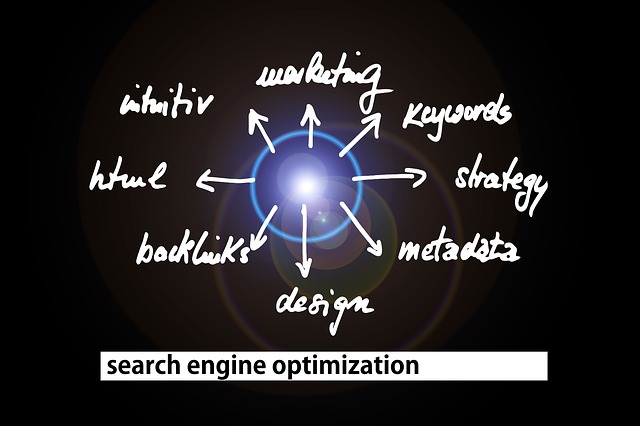Artificial Intelligence (AI) is reshaping the job market by automating routine tasks and enhancing human capabilities in sectors like healthcare, education, and customer service. While repetitive jobs are at risk of displacement, there's a growing demand for professionals skilled in AI tools, critical thinking, creativity, and emotional intelligence. Adapting to this shift requires developing digital literacy skills, reevaluating curricula, and acquiring new abilities through resources like survey research techniques and learning styles assessments. Google trends highlight increasing demand for roles in data science, machine learning, and software engineering. Ethical considerations are crucial as AI integrates into industries, with companies like Google focusing on complementing human roles rather than replacement.
Artificial intelligence (AI) is reshaping the job market, creating a complex interplay between job displacement and creation. This article explores how AI transforms various sectors by enhancing human work, birthing specialized AI jobs, and driving demand for reskilling. We delve into Google’s role as an AI pioneer, leveraging its search engine to revolutionize information access. Additionally, we address ethical considerations crucial for responsible AI integration. By analyzing these aspects, we uncover the new landscape of work in the AI-driven era.
- AI's Impact on Job Creation and Displacement
- Enhancing Human Work: Tasks and Efficiency
- The Rise of Specialized AI Jobs
- Skilling Up: Demands for New Century
- Google's Role: AI-Powered Search and Beyond
- Ethical Considerations in AI Integration
AI's Impact on Job Creation and Displacement

Artificial Intelligence (AI) is revolutionizing the job market by both creating new roles and displacing existing ones. As AI automates routine tasks, jobs requiring critical thinking, creativity, and emotional intelligence are becoming increasingly important. Sectors like healthcare, education, and customer service are witnessing a surge in demand for professionals who can leverage AI tools to enhance productivity and deliver personalized experiences. For instance, teachers are now equipped with data analytics to tailor their teachings strategies for diverse learners, thereby improving student outcomes.
On the other hand, jobs that involve repetitive tasks are at higher risk of displacement. The development of digital literacy skills has become crucial as many roles are being automated. This shift necessitates a re-evaluation of educational curricula to include not just technical proficiency but also positive discipline approaches in schools. As AI continues to evolve, it’s essential for workers to adapt and acquire new skills to stay relevant. For those seeking guidance on navigating this landscape, giving us a call at the qualitative research design guide can provide valuable insights into leveraging AI for career advancement while minimizing its potential negative impacts.
Enhancing Human Work: Tasks and Efficiency

Artificial intelligence (AI) is transforming the job market by enhancing and augmenting human work rather than replacing it entirely. AI technologies can take on repetitive, time-consuming tasks, allowing employees to focus on more complex and creative aspects of their jobs. For instance, in customer service roles, AI chatbots can handle initial inquiries, freeing up human agents to resolve intricate issues that require empathy and critical thinking. This redistribution of work can lead to increased efficiency and productivity, as employees can tackle responsibilities that leverage their unique cognitive abilities.
Moreover, AI tools offer valuable support in various industries. In computer programming, for beginners especially, AI-powered coding assistants can provide real-time feedback, suggest improvements, and even generate code snippets, making learning and problem-solving more accessible. Similarly, in education, AI algorithms can personalize learning experiences, adapting to individual student needs through adaptive learning platforms. While there are concerns about the potential impact on jobs, as demonstrated by the debate around home schooling benefits and challenges, AI’s role is often one of augmentation, giving professionals the tools they need to excel. For those interested in exploring new career paths, learning theories comparison charts can offer insights into effective educational methodologies, potentially paving the way for innovative job roles in AI development and integration. To learn more about these trends, give us a call at survey research techniques.
The Rise of Specialized AI Jobs

As artificial intelligence (AI) continues to evolve and integrate into various industries, it’s reshaping the job market in profound ways. One notable trend is the emergence of specialized AI jobs, which require unique skill sets tailored to this new technological landscape. Professionals with expertise in training, developing, and implementing AI systems are now in high demand across sectors like healthcare, finance, and manufacturing. These roles often involve complex tasks such as data collection, preprocessing, model design, and performance optimization.
The need for these specialized positions is driven by the increasing complexity of AI technologies. While basic tasks can be automated, advanced AI applications require human expertise to interpret data, ensure ethical considerations, and develop strategies that align with organizational goals. For instance, professionals skilled in quantitative data analysis basics are crucial for training AI models effectively. Moreover, critical thinking exercises and a deep understanding of pedagogy and andragogy differences become essential when designing AI-driven educational platforms or adaptive learning systems. As AI continues to transform the job market, giving us a call at quantitative data analysis basics can help you stay ahead in this new era of work.
Skilling Up: Demands for New Century

As artificial intelligence (AI) continues to evolve and integrate into various sectors, the job market is undergoing significant transformations. To stay relevant in this new century, individuals must embrace the need for continuous learning and skill development. The rapid advancement of AI technologies demands a shift in traditional work patterns, prompting employees and employers alike to adapt and upskill. According to Google’s trend analyses, professions related to data science, machine learning, and software engineering are on the rise, reflecting the growing demand for AI-literate professionals.
The process of skilling up involves understanding the scientific method steps behind AI development while also considering the nuances of pedagogy and andragogy differences in adult learning. Effective learning styles assessment tools can aid individuals in discovering their preferred educational approaches, enhancing their ability to absorb new knowledge. For instance, visiting us at conflict resolution strategies for students anytime can provide valuable insights into modern learning methodologies, ensuring that workers are equipped with the skills needed to thrive in an AI-driven job market.
Google's Role: AI-Powered Search and Beyond

Google has been at the forefront of leveraging artificial intelligence (AI) to transform various sectors, with its AI-powered search engine being just one example. This technology has revolutionized how users access information, making online research faster and more efficient. Beyond search, Google has integrated AI into numerous tools and services, including language learning apps review platforms where machine learning algorithms help personalize learning experiences.
The company’s impact extends to essay editing techniques and behavioral modification in education through its AI-driven tools. For instance, Google Docs’ automatic grammar and spelling checks, enhanced by AI, assist users in creating error-free content. Moreover, AI models can analyze student writing patterns, providing insights that educators can use to tailor instruction and improve learning outcomes, similar to the principles behind behavioral modification strategies. As these applications demonstrate, Google’s commitment to AI innovation promises to continue reshaping not only the tech industry but also education and content creation sectors in profound ways.
Ethical Considerations in AI Integration

As artificial intelligence (AI) integrates into various sectors, ethical considerations become paramount. The job market is undergoing a significant transformation with AI taking on tasks once performed by humans. This raises questions about the fairness and impact of automated systems on workers. Google, among other tech giants, has been actively researching and developing AI to enhance productivity while ensuring it does not displace essential human roles but rather complements them.
One key area is data analysis, where tools for students and professionals alike are being enhanced by AI capabilities. However, the use of such tools must adhere to strict ethical guidelines, especially when dealing with sensitive information. For instance, survey research techniques that employ AI could potentially bias results or invade privacy if not designed with transparency and accountability in mind. Even conflict resolution strategies for students, facilitated by AI, require a deep understanding of ethical boundaries to ensure justice and fairness are upheld.
Artificial intelligence (AI) is reshaping the job market, creating new opportunities while displacing others. It enhances human work by automating repetitive tasks, increasing efficiency, and enabling professionals to focus on more complex responsibilities. The rise of specialized AI jobs, such as AI engineers and data scientists, underscores the demand for skilled workers in this evolving landscape. Companies like Google are leveraging AI technologies, notably in search algorithms, to revolutionize user experiences. However, ethical considerations must be addressed to ensure fair and responsible integration of AI into various industries. Staying ahead in this new era requires continuous upskilling and adaptation to the changing demands of the job market.

Leave a Reply